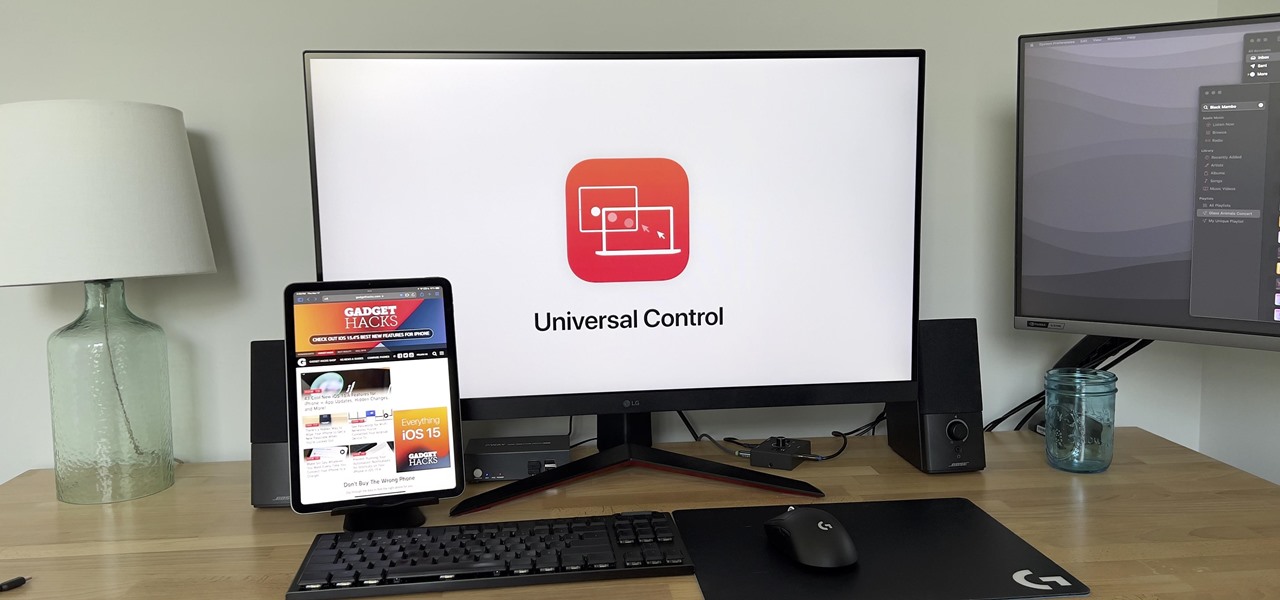How Apple Could Revolutionize the Mac Experience With Generative AI
Apple is keeping its cards close to its chest, but we can theorize.
Generative artificial intelligence (AI) is the tech trend that shows no sign of slowing down, and it’s soon to impact your daily Mac experience. Let’s take a look at what we know about Apple’s generative AI plans and explore some ways that it could revolutionize your Mac.
What Is Apple’s Involvement With Artificial Intelligence?
Apple has been using artificial intelligence and machine learning in its operating systems and applications for a long time. A recent example of this is the Photos app and its intuitive search function; AI is used to recognize who (and what) is in an image, helping you search for pictures of family, documents, and locations. Spotlight and the Health app also currently rely heavily on artificial intelligence.
But generative AI is different. Generative AIs are artificial intelligence models trained on data sets and are able to generate content. This can be text, images, video, and audio. You’re probably familiar with Google’s Gemini and ChatGPT, for example.
Apple has designated significant resources to develop a generative AI and catch up with the current industry leaders. The company hasn’t been secret about that. In March 2024, Apple published a research paper detailing the training of its AI named MM1.
When Does Apple Plan to Release Its Generative AI?
While the specific release date for the rollout of Apple’s generative AI remains undisclosed, Apple CEO Tim Cook said, during the company’s quarterly earnings call in January 2024 (see the transcript on Seeking Alpha), that details would be announced in 2024. He hinted that customers could even expect to experience these innovations in the same year.
This aligns with earlier reports from credible sources, such as Bloomberg’s Mark Gurman, who suggested the possibility of iOS 18 being the most significant update in the operating system’s history. This would largely be due to generative AI integration with Siri, among a host of other applications. Apple is also in talks to potentially integrate Gemini into iOS 18 (as reported by Bloomberg), indicating that Apple’s generative AI might not be ready in time, or that Gemini will be used in conjunction with MM1.
Cook’s remarks, while lacking in details, affirm the company’s commitment to integrating AI into its software platforms (macOS, iOS, iPadOS, watchOS, tvOS, and visionOS).
We should learn a lot more about Apple’s generative AI ambitions on June 10th, 2024, at the company’s annual Worldwide Developers Conference (WWDC).
How Will Apple’s Generative AI Transform macOS?
As we all eagerly await further announcements, here’s how we think macOS could be improved with generative AI.
1. Siri
Let’s face it, Siri kind of sucks. Thankfully, it’s likely that Siri will get a complete overhaul, starting with iOS18 (macOS to follow). We can expect some new features similar to those when Google Assistant integrated with Bard (now Gemini).
With a generative AI embedded in Siri, it would have a much more advanced natural language understanding. It could help Siri understand the intent and nuances of your requests much better than it already does, and respond accordingly.
For example, you could command Siri to do things like write a social media caption from your photo. Or have Siri read an Apple News article and generate a summary. It might even understand the context of your text messages and emails and answer your questions accordingly, possibly by checking against other apps to refine its answer.
2. Pages
Drawing inspiration from tools like Grammarly, Apple will likely introduce features that assist you in writing and editing. An AI-powered editing assistant in Pages could help to craft polished documents, from suggesting alternative word choices to refining grammar, tone, and syntax.
3. Final Cut Pro
An AI-enhanced Final Cut Pro could revolutionize the editing process by automating tasks like color correcting and audio synchronization, and offering creative suggestions for transitions and effects. With generative AI added to Final Cut Pro, you could tell the app what you want to do, and it would perform your tasks.
This would help Final Cut Pro compete much better with Adobe Premiere Pro, since Adobe has already integrated generative AI features into its products.
4. Numbers
Google Sheets integrated Gemini AI in early 2024, suggesting that Apple will aim to do the same with the Numbers app. One example from Google Sheets involves using natural language to perform data analysis. There is no need to memorize formulas anymore—ask the AI what you’re trying to do, and it will get the formula for you.
5. Notes
The Notes app lacks organizational features. Currently, the most recently opened Note moves to the top, but it would be easier if generative AI helped sort them. Similar to Pages, AI-driven content generation features could be added to assist you in brainstorming ideas, summarizing key points, or turning bullet points into cohesive sentences.
6. Apple Music
Apple Music is lagging behind Spotify in features, especially when it comes to playlists and recommendations. With generative AI, you might be able to instruct the app to do things for you in plain English. Picture this: you search for a “focusing at work” playlist, and Apple Music generates one based on your playing history and trending music.
7. Apple Health
With the Health app, Apple could introduce features that better analyze and interpret your health data. You could receive recommendations based on your activity levels, sleep patterns, and nutrition habits that are tailored to your goals and preferences. Advanced data visualization tools could help you explore your health metrics in greater detail, from daily step counts to heart rate.
8. AppleCare
AppleCare with AI could change how you troubleshoot and resolve issues with your Mac. The AI would know your device model, current OS, and analyze data from other users to immediately recognize issues and provide assistance. There would be no more sifting through endless troubleshooting guides or waiting on hold for a support representative.
9. Xcode
Bloomberg reported that Apple plans to compete head-to-head with Microsoft’s Copilot on the next major version of Xcode, which has already undergone internal testing.
If you’ve used Microsoft’s Copilot on your Mac, imagine using an AI like that to analyze your codebase, anticipate your next steps, complete code blocks, and provide intelligent suggestions to speed up your development workflow. Forget searching through GitHub looking for coding help.
With Apple developing its own generative AI, and a possible integration with Google’s Gemini, you can look forward to seeing some benefits of artificial intelligence on your device in 2024.
As this technology permeates native applications such as Notes and Apple Music, through to customer support and app development, we can all look forward to a significant shift in how we use our devices. We’re all anxiously awaiting WWDC in June 2024, where we’ll hopefully get news on Apple’s generative AI ambitions.











